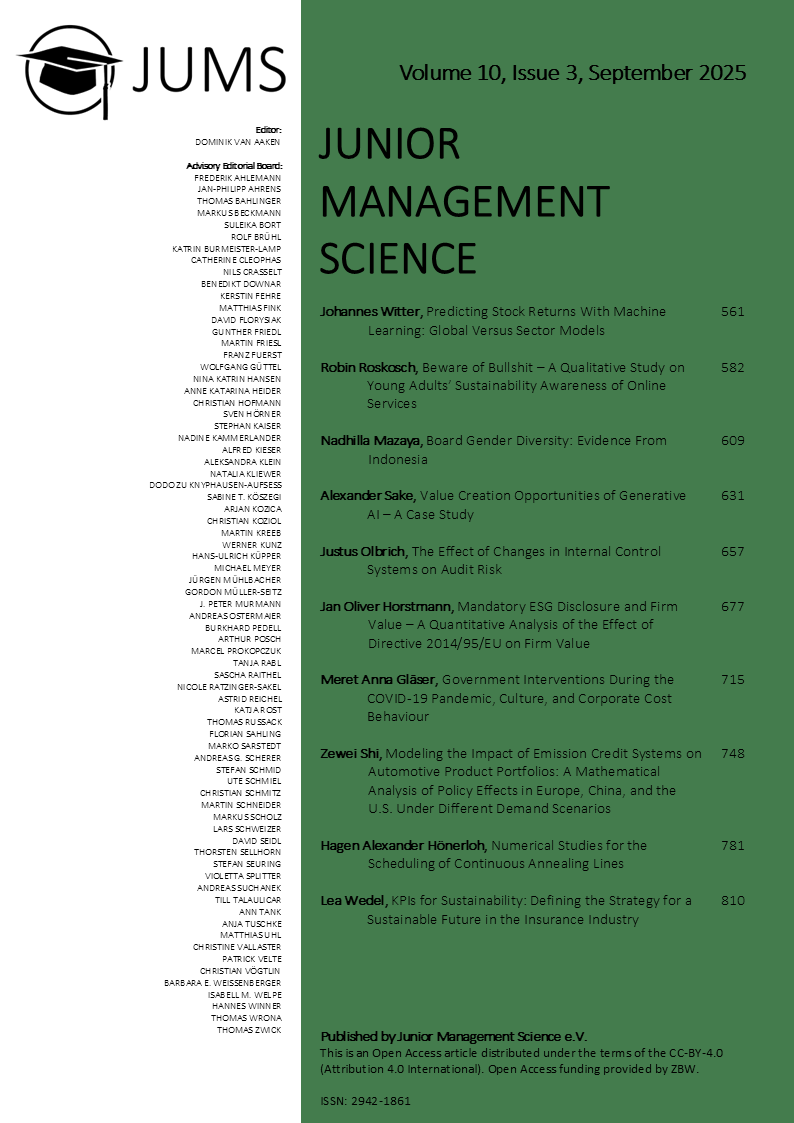Abstract
This work offers novel insights into how the introduction of the Non-Financial Reporting Directive in the European Union in 2014 affected firm value. Based on the theoretical discourse, it seems ex-ante unclear how this ESG disclosure directive is perceived by capital markets and affects firm value. Hence, this work aims to shed more light on the topic and add to the scant evidence literature offers. Specifically, the implications of the first-time mandate of ESG information disclosure are investigated using an instrumental variable and a difference-in-difference approach on a propensity score-matched sample of 708 firms based in the European Union and the U.S. Difference-in-difference results imply that firm’s ESG performance, measured by Refinitiv’s ESG scores, significantly increases after the adoption of the directive. Subsequent instrumental variables analysis suggests that the increased ESG performance resulting from the directive is associated with relatively weak, negative effects for Tobin’s Q as the measure of firm value. In addition to confirming anticipatory effects for Tobin’s Q as early as 2014, significant evidence reveals that firms (sectors) with higher ESG performance had a more negative market reaction than firms (sectors) with lower ex-ante ESG performance.
Keywords: disclosure regulation; firm value; mandatory ESG reporting; market reaction; non-financial reporting directive (NFRD)

Dieses Werk steht unter der Lizenz Creative Commons Namensnennung 4.0 International.
Copyright (c) 2025 Jan Oliver Horstmann

